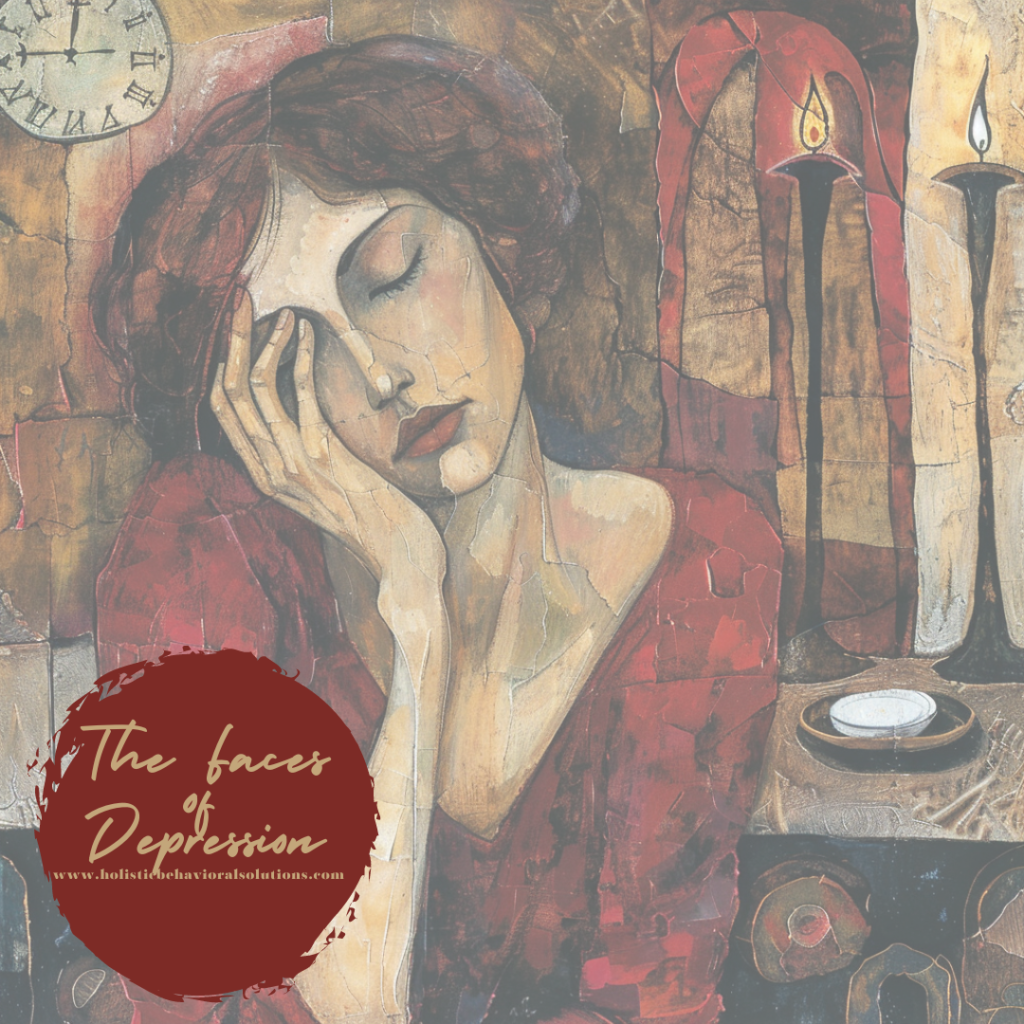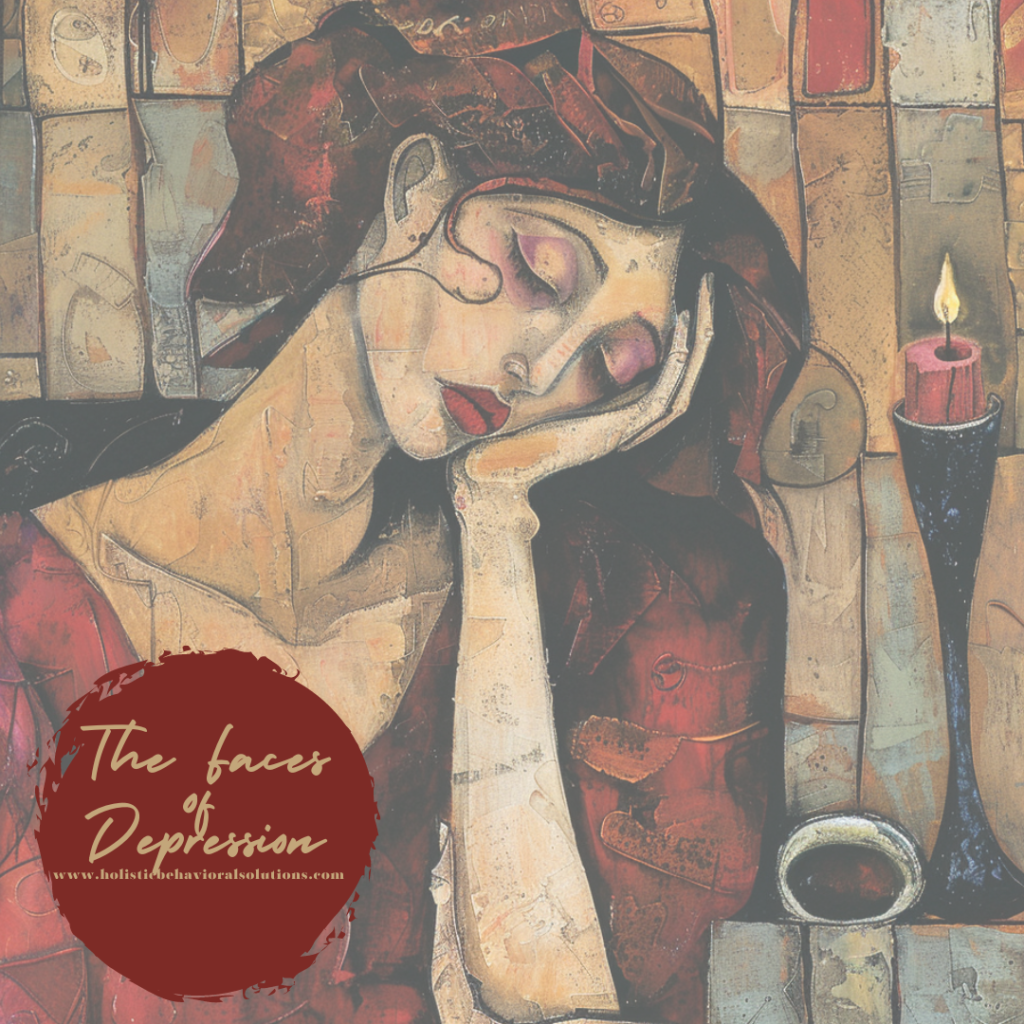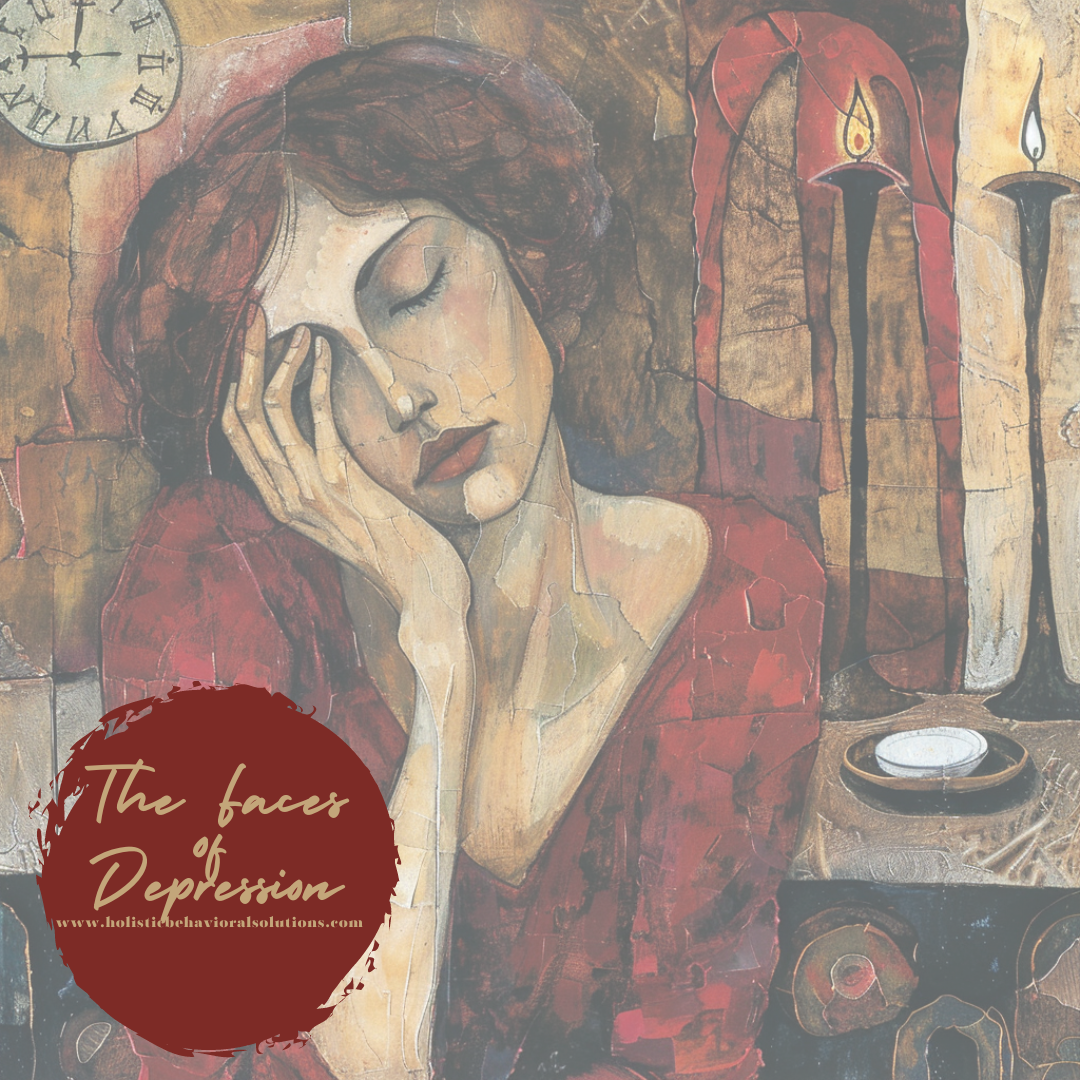
Navigating Depression: How Therapy and Counseling Can Light Your Path to Wellness
Understanding Depression: More Than Just a Bad Day
Depression is a complex mental health condition that transcends occasional sadness or mood swings. Sadness is a part of the human spectrum and is very necessary as it allows us to appreciate the joy of good days. However, sadness that lingers and feels insurmountable can lead to depression. Depression is a persistent sense that something in your life is “off,” and it can affect you at your core, sometimes manifesting in sleep and appetite changes.
This cloud of sadness can affect your emotions, thoughts, physical health, and daily functioning. There may also be a “cognitive slowing.” Cognitive slowing is also known as “brain fog” and is a symptom of depression where there is a reduced ability for your brain to process thoughts. It is almost like depression is slowly draining you. Recognizing depression is the first step toward healing, and it’s crucial to know that you’re not alone. Millions worldwide navigate this challenge, and there’s a path forward through therapy and counseling.
The Many Faces of Depression
Depression manifests uniquely in everyone. People can often mask their sadness under bravado and false cheer. Symptoms of this disorder may include a deep sense of sadness, loss of interest in activities, changes in appetite or sleep, fatigue, feelings of worthlessness, and difficulty concentrating. It can feel as if life is gray, and you have a sense of being unsatisfied. These symptoms can create a cycle that feels impossible to break, but therapy and counseling offer a sense of hope at a time when we feel hopeless.
The Role of Therapy and Counseling in Managing Depression
Personalized Treatment Plans: Therapy provides a tailored approach to your mental health. Skilled therapists work with you to understand your unique experiences with depression, crafting a personalized treatment plan that addresses your specific needs and goals. Therapy is more than a motivational talk or “getting it off your chest.” Therapy goes to the root of “why” you are sad and what you can do about it.
Compassionate Support: A therapeutic relationship offers a safe, non-judgmental space to explore your feelings and challenges. This supportive environment is crucial for healing, allowing you to express yourself freely and start the process of understanding and managing your depression. The difference between therapists and empathetic friends is their objectivity and training.
Evidence-Based Techniques: Counseling and therapy for depression often involve evidence-based techniques like Cognitive Behavioral Therapy (CBT), Interpersonal Therapy (IPT), and Dialectical Behavior Therapy (DBT). These approaches help you identify and change negative thought patterns, improve communication skills, and develop coping strategies for emotional regulation.
Empowerment Through Self-Discovery: Therapy is not just about overcoming depression; it’s also a journey of self-discovery. Through counseling, you can gain insights into your thoughts, behaviors, and emotions, empowering you to make positive changes in your life.

Navigating Your Path to Wellness
Taking the First Step: Recognizing the need for help and seeking therapy is a courageous first step toward wellness. Finding a therapist who aligns with your needs and preferences is vital for a successful therapeutic experience. Please reach out to us at 6097523098 for more information about our services.
Commitment to the Process: Therapy is a journey, and progress takes time and commitment. It’s important to be patient with yourself and remain engaged in the process, even when it feels challenging. One step at a time, that is all we need to do.
Holistic Approaches: Alongside therapy, incorporating holistic wellness practices like regular exercise, healthy eating, mindfulness, and adequate sleep can significantly impact your overall well-being and support your treatment.
Building a Support System: Surrounding yourself with a supportive community—whether friends, family, or support groups—can provide additional encouragement and understanding as you navigate your path to healing. You are never alone; but you do need to identify those who are with you.
You Are Not Alone
Depression can make you feel isolated, but it’s important to remember that you are not alone. Therapy and counseling offer a path out of the darkness, guiding you toward a life marked by hope, resilience, and well-being. If you or someone you know is struggling with depression, reaching out for professional help is a vital step toward recovery.
Embark on Your Journey to Healing: If depression has clouded your life, know that there’s a way through. Therapy and counseling provide the tools, support, and guidance to navigate this challenge and emerge into a brighter, more hopeful future. Take the first step today and discover the transformative power of dedicated mental health care.
The Holistic Store
While we are thinking that through, boost your connection from the inside out with our wellness supplements and supplies, check out our store for products that help you feel your best, making it easier to open up and connect on a deeper level. If you need to make an appointment, check us out here.
